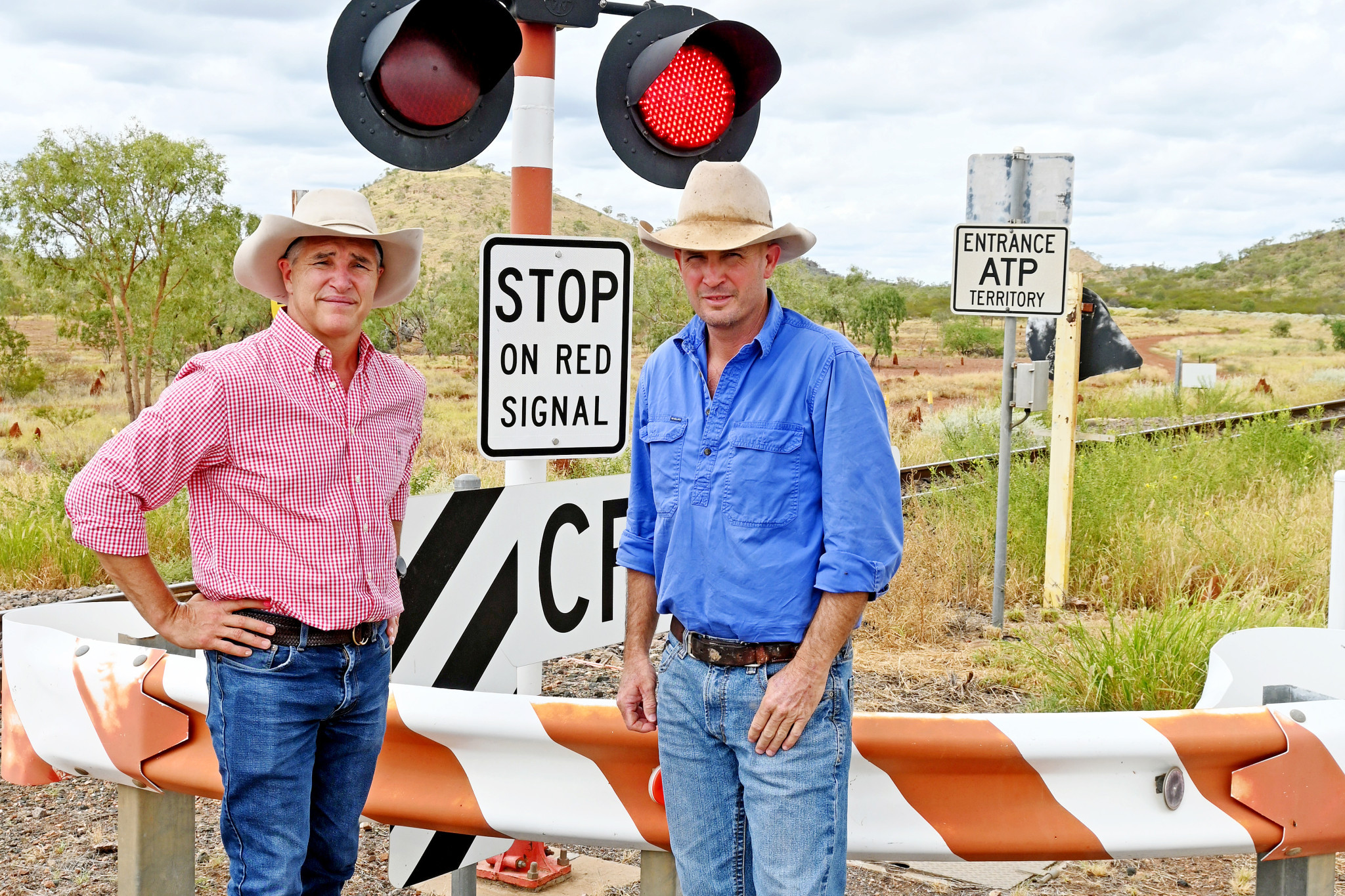General News
19 March, 2025
Dodgy rail deal is stunting growth in the North West
Elected leaders and business directors are calling for the state government to make changes.

Concerns continue to mount over the high cost of doing business in the North West, with the Mount Isa-Townsville rail line firmly in the sights of local leaders.
While the concerns are nothing new, the issue has reared its head again following the collapse of the Ardmore phosphate mine.
Parent company Centrex said the high cost of rail to export via the Port of Townsville was making it tough to do business.
In January, CEO Robert Mencel said 70 per cent of the company’s operational costs were in transporting its phosphate to Townsville, a third of which were government-related charges.
The Mount Isa-Townsville rail line is owned by Queensland Rail, however the trains are operated by Aurizon.
The cost of transport from the North West can be broken up into four sections – getting the product from the mine to the rail line, then paying Queensland Rail a “below the line” fee, then an “above the line” fee with Aurizon, followed by exporting costs with the Port of Townsville.
While those fees are not unique, MITEZ CEO Maria James said the Mount Isa line was run on a “total cost recovery basis”, meaning that users cover Queensland Rail’s costs in operating and maintaining the line.
“The less people on it, the more expensive it is for those that remain on it,” she said.
Member for Traeger Robbie Katter said Queensland Rail’s treatment of the Mount Isa line was different to the rest of the state network and called for the Crisafulli government to subsidise or absorb some of the costs to encourage junior miners and reduce the burden on some of the major users.
“Nev Power, in his keynote address in Mount Isa the other day, said it was bewildering to see that the costs have become so ridiculously high on the Great Northern rail line that operators are preferring to truck rather than rail their product,” the MP said.
“We know that our rail costs are three to four times higher than the next highest price in Australia and we know that business is highly sensitive to rail, the track fees and rail costs.
“And the (state) government is in control of that. So, if the government wants to see mining out here, they need to look after the basics and there’s an opportunity to do that here.
“I’d like to think that once they settle in, they’ll come to the realisation that the North West Mineral Province is an income provider to the state.”
Cloncurry Shire mayor Greg Campbell, who met with Mr Katter on Monday, said it was a complex issue and conceded there was not an easy fix.
“It’s the tyranny of distance that John Flynn talked about 100 years ago,” he said.
“We’re not making Cloncurry any closer to the Port of Townsville so we can only make it more efficient, whether that’s road or rail or how we get the policy right.
“I think it’s true to say that it is complex.
“There are multiple government agencies that have their finger in the pie ... it’s probably a bad saying, but a dog with many owners dies of starvation because it’s always going to be somebody else that fixes the problem.
“That’s been the issue with the rail line for a number of years.”
Cr Campbell said a new state government had the chance to fix things for good.
“Surely something can be done to make a difference,” he said.
“Even if 20 things have to be done to fix it, we’ve got to start with the first thing and tick that off and move to the next one.”
North West Phosphate director John Cotter has been exploring the option of using Century Mine in the Gulf and the Port of Karumba to export product from his mine, located north of Mount Isa.
He said if the high cost of rail was reduced, it would be an easy decision to use the Mount Isa line.
“If you look at the Central Queensland rail network, there are different tariffs for different types of coal and the Mount Isa rail line has one tariff, regardless of the commodity and its sales price,” he said.
“How is it logical that a user of phosphate with a retail price of somewhere around $200/tonne is equitable to $10,000/tonne in copper? These pricing principles are applied on every other rail line except the Mount Isa rail line and this is where Queensland Rail needs to be privatised to a certain extent because their monopoly powers are not incentivising businesses.”
Mr Cotter said he had spoken to Queensland Treasury officials in Brisbane on Monday and was hopeful that a solution could be found for the Mount Isa line.
“I think the government realises that there’s been a death valley of exploration and projects (in the North West) because of the barriers to entry on the rail line,” he said.